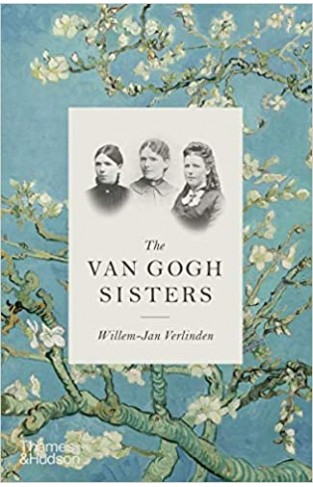The Van Gogh Sisters
By: Willem-Jan Verlinden
-
Rs 8,545.50
- Rs 9,495.00
- 10%
You save Rs 949.50.
Due to constant currency fluctuation, prices are subject to change with or without notice.
The Van Gogh siblings grew up at a time when long-distance travel by train first became possible. As each went their own way, following work and study to London, Paris, Brussels and beyond, they maintained the close relationships forged in their youth in the Netherland’s idyllic countryside by sending candid and personal letters. In this thoughtful and unprecedented biographical history, Willem-Jan Verlinden delves into previously unpublished correspondence in the Van Gogh family archives to bring Vincent’s three sisters out from their brothers’ shadow, poignantly portraying their dreams, disappointments and grief. The oldest sister, Anna, worked as a governess in England as a young woman before marrying a Dutch industrialist. The second sister, Lies, fell into poverty in spite of her literary aspirations and was forced to sell many of her brother’s paintings. Willemien, the third sister, was an active participant in the first feminist wave. She visited the studio of Edgar Degas in Paris with Theo and discussed art enthusiastically with her painter brother. She and Vincent also shared their struggles with mental health, which for Willemien resulted in institutionalization for the second half of her life.
The Van Gogh siblings grew up at a time when long-distance travel by train first became possible. As each went their own way, following work and study to London, Paris, Brussels and beyond, they maintained the close relationships forged in their youth in the Netherland’s idyllic countryside by sending candid and personal letters. In this thoughtful and unprecedented biographical history, Willem-Jan Verlinden delves into previously unpublished correspondence in the Van Gogh family archives to bring Vincent’s three sisters out from their brothers’ shadow, poignantly portraying their dreams, disappointments and grief. The oldest sister, Anna, worked as a governess in England as a young woman before marrying a Dutch industrialist. The second sister, Lies, fell into poverty in spite of her literary aspirations and was forced to sell many of her brother’s paintings. Willemien, the third sister, was an active participant in the first feminist wave. She visited the studio of Edgar Degas in Paris with Theo and discussed art enthusiastically with her painter brother. She and Vincent also shared their struggles with mental health, which for Willemien resulted in institutionalization for the second half of her life.
Zubin Mehta: A Musical Journey (An Authorized Biography)
By: VOID - Bakhtiar K. Dadabhoy
Rs 840.00 Rs 1,050.00 Ex Tax :Rs 840.00
Elon Musk: How the Billionaire CEO of SpaceX and Tesla is Shaping our Future
By: Ashlee Vance
Rs 1,695.00 Ex Tax :Rs 1,695.00
Whiskey Tango Foxtrot : Strange Days in Afghanistan and Pakistan
By: Kim Barker
Rs 1,160.00 Rs 1,450.00 Ex Tax :Rs 1,160.00
No similar books from this author available at the moment.
No recently viewed books available at the moment.
Zubin Mehta: A Musical Journey (An Authorized Biography)
By: VOID - Bakhtiar K. Dadabhoy
Rs 840.00 Rs 1,050.00 Ex Tax :Rs 840.00














-120x187.jpg?q6)













